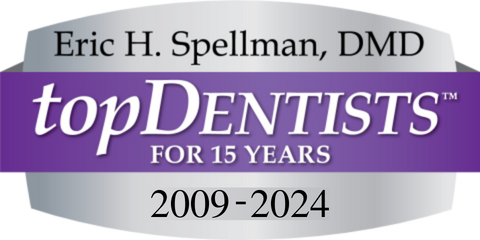Will You Need  ?
?
Whether or not you need antibiotics after a tooth extraction will largely depend on why the tooth is being extracted. Tooth extractions in adulthood are sometimes a necessary measure to stop pain and save your dental health. Antibiotics are not always administered after an oral surgery, since your mouth does a good job at cleaning itself with good bacteria, and antibiotics often destroy good bacteria along with the bad bacteria. However, our Larchmont dentist, Dr. Eric Spellman might recommend antibiotics, if there is already an infection in the mouth, or if you have a medical condition. Today, we will discuss the ins-and-outs of tooth extractions, along with reasons we might need to prescribe antibiotics after a tooth extraction.
Reasons for a Tooth Extractions
While permanent teeth are supposed to stay intact your whole life, there are conditions that may require a tooth extraction. The most common reason why a tooth needs to be extracted is that it is badly decayed or damaged, due to trauma or decay. We also might recommend extraction if:
- Your mouth is overcrowded: We might recommend a dental extraction, if you are about to undergo an orthodontic treatment. Orthodontic treatments are meant to align your teeth, when your teeth are overcrowded or too large for your mouth. Extracting teeth that don’t fit in your mouth can help prepare for realignment. We also might recommend extraction for teeth that are stuck under the gumline, but can’t erupt due to there not being enough room.
- An infection is present. When tooth decay makes its way to the pulp of your tooth and infects the blood vessels in your tooth, it can lead to serious infections. Oftentimes, we will treat this kind of decay with root canal therapy. However, sometimes the infection can be so severe that nothing can cure it, in which case, we will need to extract the infected tooth to keep it from spreading.
- There is a risk of infection. Certain medical conditions, like chemotherapy or an organ transplant, can compromise your immune system, increasing the risk of infection in a tooth. If this occurs, we might recommend extracting the tooth beforehand.
- There is gum disease present. Your gum health serves an important role in your dental health. Your gums hold your teeth securely in your mouth. When an infection compromises the tissue and bone supporting your teeth, it can lead to loose teeth, which might need to be pulled to prevent further infection and dental pain.
What to Expect During Your Tooth Extraction
Our dental office in Larchmont is experienced in performing tooth extractions, and we will make it as pain-free and comfortable as possible. Before pulling your tooth, we will inject the area with an anesthetic to completely numb the extraction site. If you’re having more than one tooth removed or if your tooth is impacted, we might recommend a stronger anesthetic or sedation dentistry to improve your comfort.
In cases where the tooth is impacted, we will need to cut away the gum tissue covering the tooth, then remove the tooth from the jawbone. In situations where the tooth is stubborn, we might have to remove the tooth in smaller pieces. Once the tooth is pulled, a blood clot will form in the socket, and we will pack the site down with gauze pads to help with bleeding. In some cases, we might need to stitch the area with self-dissolving stitches to promote healing.
When You Might Need Antibiotics After a Tooth Extraction
Dental extractions are usually straightforward and safe treatments. However, there are certain conditions that might put you at a higher risk of developing an infection. If you have a medical condition that increases your risk of infection, we will recommend antibiotics before and after your extraction. If you have one of the following conditions or a history of medical conditions or medications, make sure you let our dentist know before having a tooth pulled:
- Damaged heart-valve or a heart-valve transplant
- Congenital heart defects
- An impaired immune system
- Cirrhosis of the liver
- Artificial joints, like a hip replacement
- History of bacterial endocarditis
What to Expect After an Extraction
After your dental extraction, we will send you home to recover for a few days. During your recovery process, the following steps can help reduce your risk of infection and improve the recovery process:
- Take your painkillers as they are prescribed
- Bite down on gauze pads to reduce bleeding and allow clot to form in tooth socket, changing gauze pads before they become totally soaked with blood
- Use an ice bag or cold compress to reduce swelling
- Rest for about 24 hours after an extraction to promote healing
- Avoid rinsing and spitting forcefully to prevent dry socket
- Do not smoke, which can harm the healing process
- Brush and floss your teeth and tongue, while avoiding the extraction site to prevent infection
Contact Us
If you notice inflammation, signs of infection, or feel sick after your tooth extraction in Larchmont, you should contact our office at 914-315-4446 as soon as possible. If you have a medical condition that makes you predisposed to infection during a dental extraction, make sure you tell our dentist, Dr. Eric Spellman, so we can prescribe a preventative antibiotic and ensure your extraction goes as safe and painlessly as possible.

